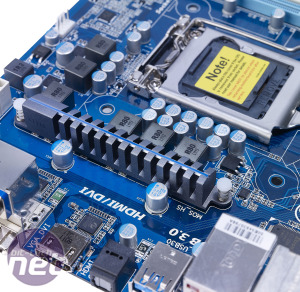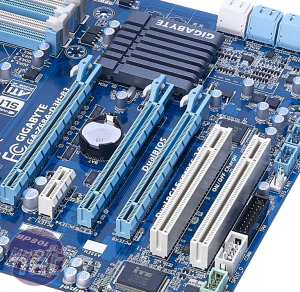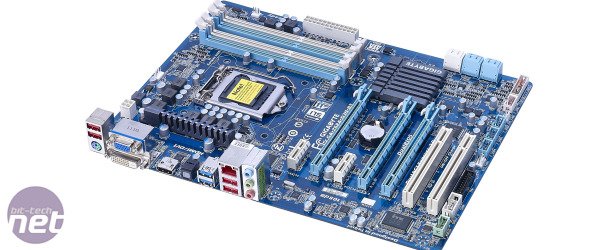
Performance Analysis
As the D3H is the first Z68 board we’ve reviewed, we were intrigued to find out how it would perform compared with the P67 boards we’ve seen. Is the Z68 chipset as quick as the P67 chipset to which it’s allegedly superior? The only way to find out was to put the board through our usual motherboard test suite.The testing started well for the D3H, as it scored a healthy 1,614 points in the image editing test. This is the quickest score we’ve seen from an LGA1155 board, although only by a single point, which is within the margin of error. Our demanding video editing test brought the board back down to earth with a bump, though, as its score of 2,703 sat 30 points behind the excellent P67-based MSI P67A-GD53 (B3).
A strong performance in the multi-tasking portion of our suite gave the D3H a final overall score of 1,926. This placed it right in the mix among the other LGA1155, P67-based boards we’ve tested, indicating that, at stock speeds at least, there’s little difference between the P67 and Z68 chipsets. Gaming was a similar story; the D3H’s minimum frame rate of 75fps in Arma II was strong, but it was slower than some of the best P67 boards we’ve seen.
Overclocking
Overclocking the D3H proved interesting, as we initially found the board unable to handle even a relatively puny 4GHz overclock. After a little investigation, we found that it was the load-line calibration (LLC) setting that was causing the problems.LLC is a motherboard feature that aims to reduce the effects of vdroop by giving greater regulation to the voltages across the board. As a result, it’s standard practice for us to set it to its highest setting, in this case level 2. Unfortunately, for some reason, this setting resulted in any overclock we applied to the board becoming unstable.
Setting LLC back to its default setting of ‘Auto’ cleared up the problem and enabled us to push our test Core i5-2500K towards its 5.1GHz limit. Unfortunately, the D3H couldn’t manage to reach this level, instead topping out at a still highly respectable 5GHz stable overclock.
This overclock granted the D3H a significant increase in performance; its overall Media Benchmarks score jumped 777 points to 2,703; while this isn’t the best result we’ve seen from an LGA1155 board, it’s still better than the Premium-Grade-toting GD53 and the £150 Asus Sabertooth P67. Gaming performance also saw an appreciable boost; the board’s minimum frame rate of 82fps in Arma II was the joint best result we’ve seen.
Conclusion
When viewed in the context of other Z68 boards, the Gigabyte GA-Z68A-D3H-B3 looks like a winner, as it’s an affordable way of acquiring the features unique to the Z68 chipset. Gigabyte has cut corners to hit this price point, but it has done so sensibly and cleverly.Viewed in the wider context of the LGA1155 market, however, the D3H looks a little less attractive. It’s the same price as the P67 MSI GD53 but, due to its more expensive chipset, it has fewer features, poorer on board cooling and a less flexible BIOS. As a result, the D3H is a strong candidate if you want the Z68-specific features. However, many people will be better off opting for a P67 board.
-
Value20 / 25
-
Features18 / 30
-
Speed40 / 45


MSI MPG Velox 100R Chassis Review
October 14 2021 | 15:04











Want to comment? Please log in.